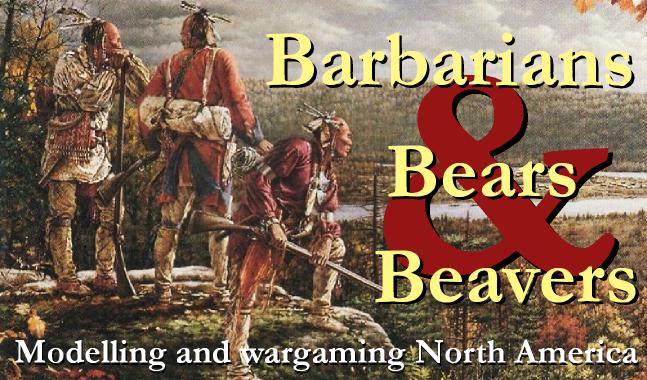There was a portage route just towards Lake George from this site, with a bridge crossing the river. With there being no evidence of what this bridge looked like, I've decided to use the bridge and ford at Rushmere as a template.
Progress so far. River, bridge and ford constructed. The mill is partially built and painted.
Making great progress now. The main part of the river is finished. For the water effect, I used transparent silicone calking, which is surprisingly versatile. A thin coat will give a nice clear effect when it dries, but if you go a bit thicker, you get a nice milky look which looks like disturbed water. You get about eight minutes play time before the material stops being workable. A wide, flat brush works well to spread the silicone around and to give a direction to the flow of water.
The mill building is now finished with creaky roof in place and fixed in situ. Next thing is to make the mill surroundings look used and busy and to add the water feed chute to the mill wheel.
Here are a couple pics of the finished surfacing for the first two boards. The boards are recycled old terrain boards which have been beat up. I used a bit of flock and paint to hide the blemishes ad the used two green spray paints to bled things in together.
Now to start work on the other two boards, These two will be partly wooded shallow, rocky hills. I stuck two old gaming boards together then carved out the shape of the hill from the smaller of the two. To this, I added cork bark for rocky bits and the entire surface was covered in a mixture of brown paint, PVA glue, sand, tea leaves and birch brachts. When this was dry, I coated the higher areas with PVA and poured onto this, a mixture of tea leaves and birch brachts to simulate woodland undergrowth and leaf mulch.
Obviously, a wood need trees. I wanted to get away from having trees with bases being sat onto the terrain but still wanted to keep the flexibility of being able to remove them for ease of transport and storage. This is what I came up with...Stick brass rod onto the tree if its a small one or drill out the trunk for larger trees. Then insert into the ground, a corresponding length of copper tube which the brass wire glued to the tree will fit into. Now cut out a piece of material to be glued to the stump area of the tree and glue tea leaves and birch brachts to it. This tree can now be fitted to the terrain and removed during game play or for storage and you don't have the unsightly bases.
Birch brachts can be harvested for free in the autumn from any birch tree.












































